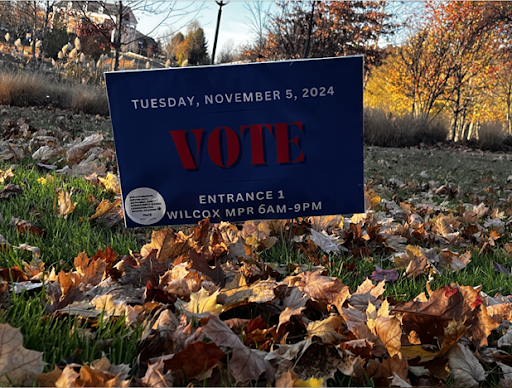*To prevent electioneering, photos were not taken within 100 feet of the voting site.
On Election Day, Pace’s Center for Community Development, Action, and Research (CCAR) hosted a voting location in Willcox Hall. From 6 a.m. to 9 p.m., voters in the local area and at Pace were allowed to vote for the candidates of their choosing.
This year in Westchester County, Senators, House of Representative Members, and the President were up for election on a federal level. On a local level, various positions in Westchester County and New York State were open.
CCAR members Daniel Pacheco and Peter Hansen were asked questions regarding the voting process and how making Willcox Hall a polling location started.
What made CCAR decide to implement voting this year in particular?
Pacheco: “It was a decision by the Westchester County Board of Elections. The old voting place used to be at Briarcliff Manor High School. I don’t remember the exact reasons why they didn’t want to host it anymore but we were asked if we wanted to host. We accepted the offer.”
How was everything set up? What was the planning process like?
Pacheco: “CCAR’s director Heather Novak collaborated with the university’s facilities, security, and the Board of Elections in order to figure out all the logistics. They decided Willcox MPR would be the best place. They also had to determine where our check-in table would be as it had to be 100 legal feet away from all the voting. Ground rules were laid out for parking and what Pace could or could not do in terms of election integrity.”
What advice do you have for people at Pace who want to become involved in civic engagement activities?
Pacheco: “The first thing you can do is vote. It is the easiest way to become involved in your community whether it’s at a federal or local level. You should also educate yourself about the candidates running and their respective levels of government; how each functions and what they do. Not everything has to be political if you want to make a difference.”
Hansen: “You should also register to vote whenever you get the chance. Just because there’s an election today doesn’t mean registering to vote stops, it keeps on going.”
Does CCAR have any planned political and/or civic engagement activities for the future?
Pacheco: “We might have an alumni coming back to talk about their career in local government.”
Hansen: “This past February we were able to meet with Congress people in New York and get some funding through them. There’s also the annual advocacy clinic which is advocating for animals through law. We’re looking to do our volunteer fair and looking at a bunch of collaborations to expand our outreach. We still need to host events to make us known to people around campus, especially those relating to civic engagement.”

